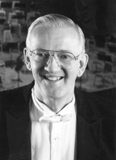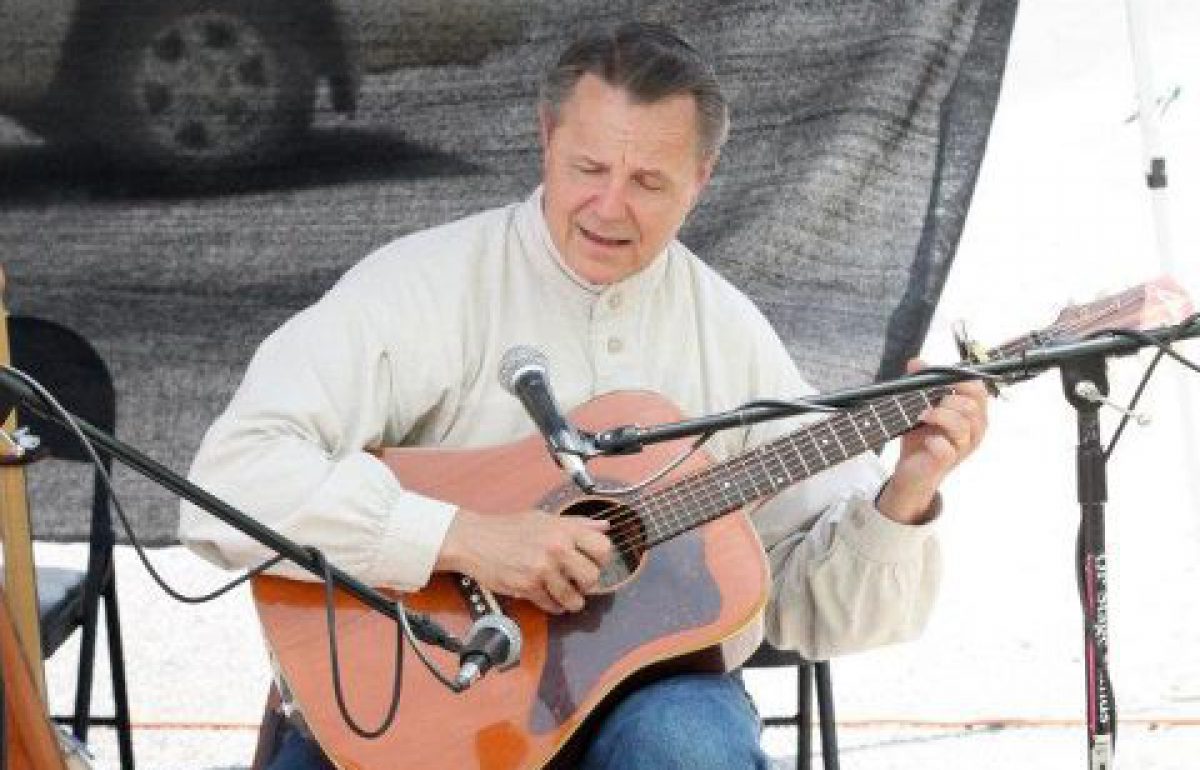Dr. Gus died today. He was the dean of the School of Fine Arts while I was at Bob Jones University and he was my first and only orchestral conductor. He was one of the most gracious people who ever endured me.
 As a sophomore I sat at supper one night and a cellist at our table complained that she had to play double bass in the orchestra because there were no bass players. Intrigued and ever adventurous, I asked her how someone might join the orchestra? “I guess you’d talk to Dr. Gus,” she replied. (Music majors never had to ask such questions; the opportunities were actually requirements.)
As a sophomore I sat at supper one night and a cellist at our table complained that she had to play double bass in the orchestra because there were no bass players. Intrigued and ever adventurous, I asked her how someone might join the orchestra? “I guess you’d talk to Dr. Gus,” she replied. (Music majors never had to ask such questions; the opportunities were actually requirements.)
I found Dr. Gus somewhere on campus the next day and said “I’ve heard that you’re short on bass players in the orchestra.” He conceded, “Oh, we need bass players badly.” I announced “I could probably play as badly as anyone else.” I then outlined my professional experience: I had played the electric bass in beer joints as a country musician and in high school as a big band jazzman. And although I had plucked an upright bass a few times, I’d never held a bow in my hands. “But I could learn!” I cheerfully chirped.
Always gracious, he lamented that there was no way for me to play at the level of the university orchestra, but I could join the “string ensemble” and perhaps try out for orchestra the following year. That satisfied me and I joined the string ensemble right away. I could read music well, but knew nothing about the bow. After watching me on my first day, a cellist had to inform me “You’re supposed to change your bowing direction with every note.” Oh.
I worked hard, excited by all that I was learning. In about three weeks Dr. Gus dropped by our class and just observed. After class, Mrs. Pollard approached me and said, “Dr. Gustafson says that you are to report to orchestra practice this week.” Thus ended my career in the bush league.
No other member of the university orchestra loved it more than I, but none knew less than I. They were patient with me, but Dr. Gus could be very firm when he thought it wise. I remember an oratorio when we were in the final hours of rehearsal before performance and he had admonished the huge choir up in the loft to project. They weren’t getting it, so he stopped the music and upbraided them, showing a bit of anger. He ended by shouting a one-word command: “PROJECT!” I’ll warrant you, everybody projected! But I noticed his daughter Dianne (1st chair violin) smiling up at him with an expression that subtly said “Oh, Daddy, quit putting on!” He just wanted us to do our best.
In our first reading of Verdi’s Rigoletto, we came to a place where the entire orchestra became silent except for the double bass “buzzing” a note behind some offstage trumpets. That trumpet group wasn’t in place yet, so I would be playing those four measures all by myself. I knew nothing about the piece, and when I heard everyone else stop playing, I thought I must have read my music incorrectly, so I also stopped. Dr. Gus continued directing in the silence and called out “double bass!” I quickly tried to play, but that “buzzing” (tremolo) was a bowing technique entirely new to me and I didn’t have the dexterity to do it. I clawed and gouged for a few beats and then, in a characteristically irreverent attempt at humor, asked, “Had enough?” He looked at me as he continued beating the time and shouted “PLAY!” I played. And I doubt that there was ever a bassist in the instrument’s history who practiced a tremolo more assiduously than I did that week. You can bet I had it down by the next rehearsal.
Despite my meager attainments on the instrument, Dr. Gus always treated me like a colleague. As we took our places after an intermission, I recall him catching my eye from his position at the conductor’s stand and giving me the “OK” gesture with a wink, just reassuring me (howsoever falsely) that I was doing fine.
He was an immensely talented conductor, partly because of his technical proficiency, partly because of his loving heart. We wanted to follow him. And he said such funny things. I reminded him in his office once of how, years before, he’d put his conducting wand on his music stand and turned to the cellos and said “that phrase should descend like a fat woman slowly sitting down into a huge soft sofa.” He grinned and asked, “Did I say that?” Such images arose effortlessly in his artistic mind. (He was originally a graphic artist.) Another time he warned the violins that they needed to play the high note in a phrase and immediately go to the next notes without slowing down: “Fiddles, you’re trying to build three tabernacles on that note.” (See Luke 9:33 if you don’t understand that.)
A few years ago one of my kids was graduating from the university with some degree or another and I happened to see Dr. Gus standing around in the Amphitorium. He was about eighty years of age by then and, of course, wouldn’t remember me. I still wanted to greet him, tell him my name and what years I played for him, and let him know what the Lord had done through me in church music with the things I’d learned from him. Always gracious, he gave me the reply that I’m sure he gave to hundreds of others: “Well, we played a lot of beautiful music together, didn’t we?”
